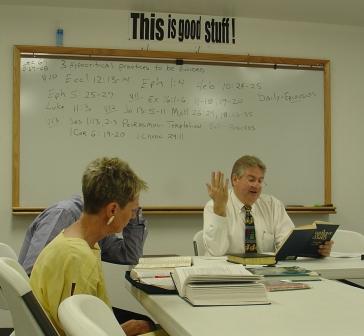Tuesday, March 28, 2006
The Summoning
Matt. 11:2-3. Now when John in prison heard of the works of Christ, he sent word by his disciples,
3. and said to Him, "Are You the Expected One, or shall we look for someone else?"
Luke 7:19-20. And summoning two of his disciples, John sent them to the Lord, saying, "Are You the Expected One, or do we look for someone else?"
20. And when the men had come to Him, they said, "John the Baptist has sent us to You, saying, `Are You the Expected One, or do we look for someone else?'"
Jesus is ministering in Galilee and John is locked up in Herod’s palace located in Machaerus, 8 miles east of the Dead Sea and 20 miles south of its northernmost tip. Jesus and John are separated by approx. 80 miles but John is desperate for some answers.
From Luke 7:17 we know that the news from the north, Galilee, is spreading to the southern regions of Palestine throughout Judea where John’s prison is located. Now when John in prison heard of the works of Christ, he sent word by his disciples, and said to Him, "Are You the Expected One, or shall we look for someone else?" It is evident that all these things /the works of Christ were being known throughout Palestine. Another thing we see is that this incarceration did not prevent John from communicating with his disciples by the method of his summoning. Luke is specific in that he summoned two of his disciples.
John’s summoning reveals that he has questions about the new kingdom that the ruler, or the Expected One, is going to set up. He is anxious to see it happen and knows that the Expected One would not tolerate for him to be locked up in this prison. This is easily understood. So, he sends two of his disciples to Jesus asking, “Are you the Expected One or do we look for someone else?” Our authors (Thomas & Gundry) explain, “Some have accused John of a faltering faith at this point. This seems unjust. His question was probably prompted rather by impatience with his own personal plight that grew out of an inability to grasp why the death of Christ had to precede his kingly rule. Prior to the crucifixion no one understood this sequence of events.”
